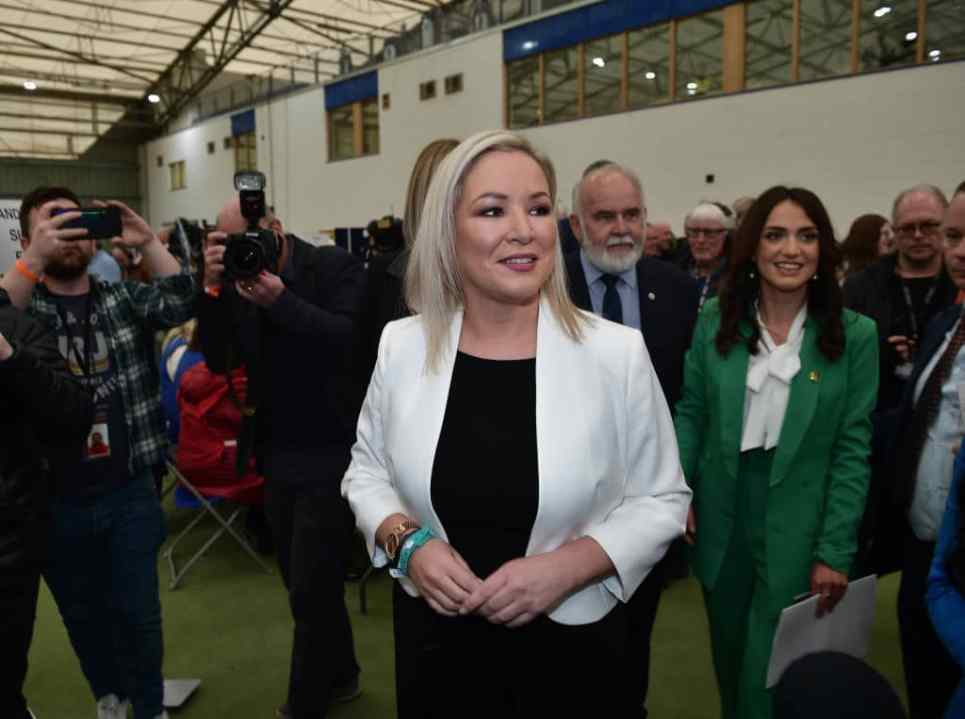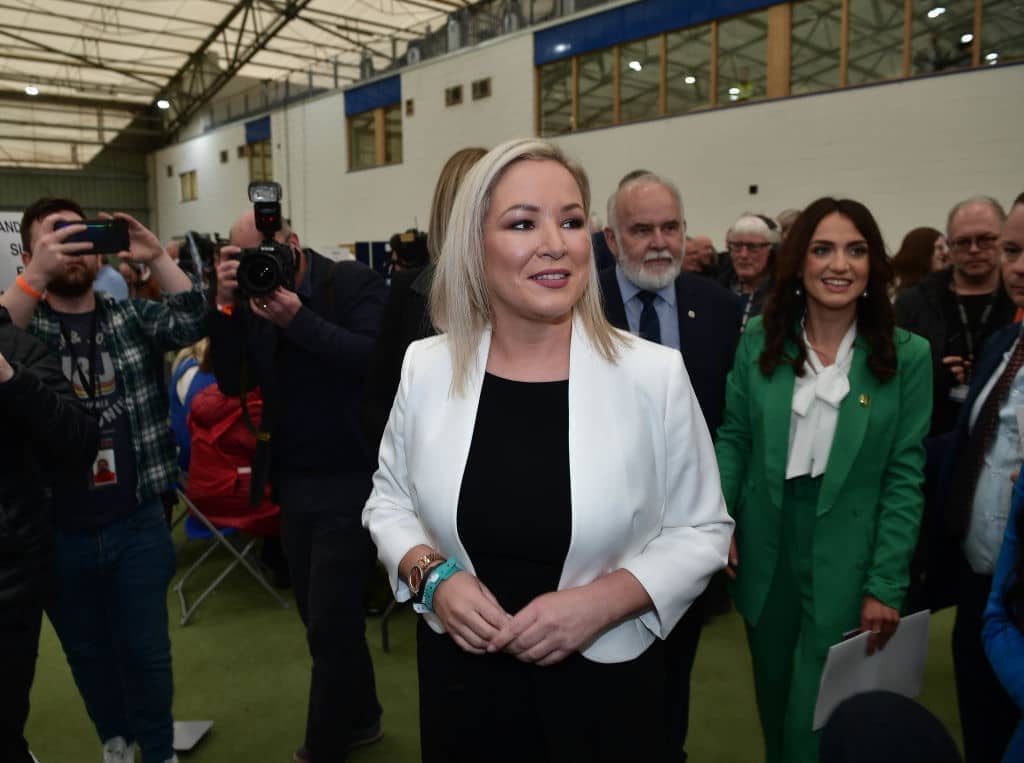No amount of extra counting later today can undo the seismic shift that has taken place in Northern Ireland’s politics. The first preference votes in Northern Ireland’s devolved assembly elections are in and Sinn Fein are the clear winners on 29 per cent.
Sinn Fein – once the political appendage of a terrorist organisation that wrought 30 years of havoc and misery – is set to win the most seats in Stormont. It will then be able to nominate the first ever Republican First Minister.
Before Unionists panic though, it’s worth examining the facts. On total votes cast, there will likely be a Unionist majority hidden by the byzantine calculus of the Single Transferrable Vote system which benefits smaller parties. Sinn Fein’s vote share has increased since the last election in 2017 but only by just over 1 per cent – it’s the large fall in the DUP’s support that has made Sinn Fein’s victory possible.
There’s no evidence from repeated polling that there is any sort of majority for a united Ireland
Northern Ireland has changed dramatically in the years since the 1998 Belfast Agreement moved Sinn Fein away from its violent associations. The foundations of that settlement are a complex set of arrangements between Orange and Green traditions to ensure that neither side can dominate the Stormont institutions. What these trade offs failed to anticipate was the growing success of the non-tribal and constitutionally agnostic Alliance party which is now in third place behind Sinn Fein and the DUP.
Meanwhile the DUP helped Sinn Fein by heavily implying during the election campaign that they would not sit down with a republican first minister in a new assembly. The DUP suggested that their decision to abstain was the fault of the Northern Ireland protocol which, post Brexit, imposes a trade border in the Irish Sea between Great Britain and Northern Ireland. But there was a whiff of sectarianism around the decision, which led to nationalists consolidating around Sinn Fein. The strategic stupidity of the DUP’s negative campaign to keep Republicans out of power backfired spectacularly. It was simultaneously too strong a position for moderate nationalists but too weak for the hard-line purists of the anti-good Friday agreement Traditional Unionist Vote, who punished the DUP for considering any sort of detente with Sinn Fein by taking 65,000 votes off them.
And what of the other parties? Doug Beattie’s Ulster Unionists – once the unassailable party of government in Northern Ireland – campaigned on a PR friendly message of pragmatic, hopeful and progressive politics. Its vote collapsed like a bad souffle. At the time of writing it’s not entirely clear whether Beattie will even keep his seat which must be dispiriting for the party that arguably ran the most upbeat campaign. The truth is most of the middle class voters who might have been tempted by this softer version of Unionism are happy, for now, with Alliance which has no position on a border poll.
The moderate nationalist SDLP have had a similarly woeful night, shrinking to fifth place with voters diverted by the prospect of a Sinn Fein first minister. The party’s muddled position on women’s reproductive rights didn’t help it either. Northern Ireland’s female voters, long denied the right to abortion after their GB counterparts were granted it, are not inclined to reward a party that was ambiguous on their right to choose. The Greens and other socialists suffered a similar fate to the SDLP as Alliance hoovered up the progressive vote.
Faced with the prospect of losing Stormont, the worst option for the DUP would be to continue to boycott the new administration until the NI protocol is ditched. But going by the party’s past behaviour, this is a reliable indicator of what it will do.
An executive cannot be formed without the two biggest parties nominating a first and deputy first minister. You will hear a lot of hooey today about how these roles are technically co-equal but the symbolism of Sinn Fein occupying the office of first minister should not be over-estimated. There’s no evidence from repeated polling that there is any sort of majority for a united Ireland. That didn’t stop the DUP from campaigning on precisely that fear. It probably also explains why Sinn Fein excised all talk of it until approximately five minutes after the results were in. There’s plenty of evidence that people in Northern Ireland care far less about that wiggly line on the map and far more about potholes, hospital waiting times, jobs and education. If the DUP really want to put the issue of the border to sleep, they should respect the democratic vote and go into power again with Sinn Fein to make politics work on a practical and local level. A functioning devolved administration within the UK jointly run by a party once dedicated to the violent overthrow of Britain is hardly a victory for Republicanism.
Both Sinn Fein and the DUP have collapsed previous assemblies for nakedly political reasons. It is hard to imagine this tactic being rewarded again by voters who will simply see well paid politicians sitting on the side-lines throwing mud at each other in the middle of a cost of living crisis. This time around, NI Secretary Brandon Lewis should make sure that politicians not sitting in Stormont don’t get paid. That, above all, might focus minds on compromise and pragmatism.








Comments